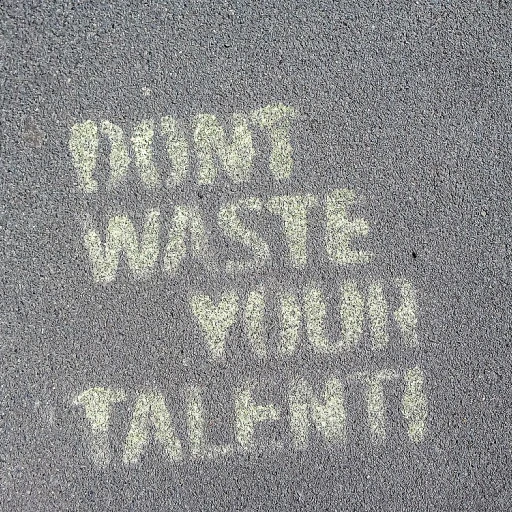The Basics of Background Checks
The Essentials of Information Gathering
Background checks play a crucial role in today's competitive job market, especially for job seekers and employers alike. They offer insights into an individual's criminal history, ensuring that employers make informed employment decisions. Understanding how arrests and convictions will appear on background checks is vital, as these records can significantly impact employment opportunities.
When a background check is initiated, it typically encompasses a thorough review of a person's criminal records, including arrest records, convictions, and any pending charges. The scope of this investigation varies based on factors such as the state and local laws governing criminal record checks and the nature of the position being applied for. For instance, in California, specific laws regulate what information can be disclosed during a background check, especially regarding arrest convictions and pending charges.
For employers, such checks are essential to mitigate risks associated with hiring decisions and to ensure a safe workplace environment. However, the process is not without its legal considerations and limitations, which will be explored in more depth. Different states have varying laws determining what can be disclosed, affecting the clarity of criminal defense records that appear on a background check.
Understanding the basics of how background checks work also facilitates navigating more nuanced aspects like the ban the box law, which influences the timing of inquiries about criminal records during the employment process.
Given the complexity of how background checks operate, both employers and job seekers benefit from staying informed about current background check practices and strategies for managing arrest records. For those seeking advice on minimizing potential biases during these checks, exploring resources on minimizing bias in background checks can provide valuable guidance.
Factors Influencing Arrest Visibility
How Arrests Are Reflected in Background Checks
When it comes to understanding how arrests appear on background checks, several factors come into play. These factors can significantly influence the visibility of arrest records and their impact on employment opportunities. For job seekers, it's crucial to grasp these elements, as they can affect your chances of landing a job.
State Laws and Their Influence
The visibility of arrest records on background checks largely depends on state laws. For instance, in states like California, certain protections are in place to limit the impact of arrests that did not lead to convictions. These laws often determine whether an arrest will appear on a background check, affecting how employers view your criminal history.
Pending Charges and Their Implications
Another critical factor is the status of any pending charges. While some states allow pending charges to appear on background checks, others may restrict this information. Employers often consider pending charges when making hiring decisions, as they can indicate ongoing legal issues.
Types of Charges and Their Impact
The nature of the charges also plays a role. For example, a class misdemeanor may have a different impact compared to more serious charges. Employers might weigh these differently, affecting how they perceive your criminal record.
Visibility of Arrests vs. Convictions
It's important to differentiate between arrests and convictions. While an arrest might appear on a background check, it doesn't necessarily mean a conviction. Employers should be aware of this distinction, as it can influence their perception of a candidate's criminal background.
For more insights on improving the clarity of how arrests are presented in background checks, visit our detailed guide.
Legal Considerations and Limitations
Examining Legal Aspects and Boundaries
Legal considerations play a crucial role in how arrest records, criminal convictions, and the criminal background are reflected in background checks. Various state and local laws dictate what can be reported. For instance, in California, the ban-the-box law limits how employers can inquire about an individual's criminal history during the hiring process.
It is vital to understand that not all arrests or criminal charges are created equal. Legal protections exist to ensure that pending charges and class misdemeanor offenses do not unreasonably bar job seekers from employment. This is particularly relevant for those with a criminal record that may include arrests but not convictions.
Additionally, the nature of background checks can vary considerably based on the state. For example, employers might only be able, by law, to consider arrest records for a certain period. In contrast, other jurisdictions might allow more discretion in evaluating an individual's criminal defense history.
Understanding these complexities is vital when addressing how arrests and criminal records might appear on a background check. Legal counsel can provide a free consultation and guidance on navigating these hurdles to ensure compliance and safeguard employment opportunities.
Impact on Employment Opportunities
The Effects of Arrest Records on Job Prospects
When considering employment opportunities, the presence of arrest records on background checks can significantly influence a job seeker's prospects. Employers often use criminal background checks as part of their hiring process to assess a candidate's past criminal history, which may include arrests, convictions, pending charges, or any other criminal records. The visibility of an individual's arrest record can impact their employment chances. In states like California, where hiring practices are influenced by both state and local laws, background checks are carefully scrutinized. Laws such as the "Ban the Box" policy have been implemented to reduce discrimination against individuals with criminal histories by delaying inquiries into criminal records until later stages of hiring. Despite these efforts, arrest records can still pose challenges for job seekers. Depending on the state, arrest records can appear on a person's background check even without a conviction. This can unfairly penalize individuals who may have been arrested but not charged or convicted of any crime. For example, pending charges or even a class misdemeanor arrest might adversely affect one's employment background assessment. Employers must balance the need for a safe workplace with providing fair employment opportunities. The predominant concern for many employers is the safety and reliability of their workforce, which is why criminal checks are often a non-negotiable part of the hiring process. However, it becomes crucial to understand that not all arrests lead to convictions, and understanding these nuances can help in forming more informed hiring decisions. Employment laws continue to evolve, reflecting a growing awareness of the need to establish fair screening practices. Employing strategies to manage arrest records effectively can be beneficial for both employers and job seekers trying to decipher the complexity of background checks, creating more equitable professional opportunities.Trends in Background Check Practices
Current Trends Impacting Background Checks
In recent years, various factors have influenced the landscape of background checks, especially when it comes to how arrests and criminal records appear. Employers are striving to balance fair hiring practices with the need to mitigate risks associated with employing individuals with arrest records. Here's a look at some notable trends affecting this space.
- Ban the Box Legislation: A significant shift has been the widespread adoption of 'Ban the Box' laws. These laws restrict employers from asking about criminal records on initial job applications, allowing candidates to be evaluated based on qualifications before arrest convictions are discussed. Many states, including California, have embraced this law to support job seekers with a criminal history.
- Increasing Scrutiny of Pending Charges: Employers must tread carefully around pending charges during the hiring process. State laws differ significantly, with some preventing the consideration of pending charges altogether, while others allow it under specific circumstances. It's crucial for hiring managers to stay informed about state and local laws regarding such considerations.
- Focus on Rehabilitation and Reentry Programs: There's a growing emphasis on programs that help individuals with criminal records reintegrate into the workforce. Employers are increasingly supportive of initiatives that train and prepare those with past arrests or convictions to re-enter employment successfully, recognizing the broader societal benefits.
- Advanced Technology in Conducting Checks: Technology continues to advance, making background checks faster and more thorough. This technological evolution can potentially uncover outdated or incorrect arrest records, which highlights the need for accurate databases and processes.
- Legal Challenges and Litigation: With the complexity of laws regarding criminal defense and employment, both job seekers and employers often seek guidance through free consultations or legal advice to navigate the challenging landscape effectively.
The importance of staying updated with the latest trends and laws cannot be overstated. Employers need to ensure compliance with state and federal laws to avoid any legal repercussions while maintaining fair employment practices.
Strategies for Managing Arrest Records
Addressing Arrest Records and Their Management
Navigating the complexities of an arrest record can be daunting for many job seekers, yet there are strategies that can be put into place to better manage these records. A proactive approach is essential for those with arrests, pending charges, or convictions visible on their criminal history. Here are some steps that individuals can take to manage these records effectively:- Understand Your Criminal Background: Obtain a copy of your background check. Knowing exactly what criminal records, arrests, and convictions appear is crucial. This allows for anticipation of potential challenges when applying for positions.
- Legal Consultation: Seeking the advice of a criminal defense attorney can be invaluable. They can offer a free consultation to discuss options such as expungement or sealing of records, particularly for class misdemeanor offenses. This may enhance opportunities by reducing the visibility of an arrest record in employment background checks.
- Utilize "Ban the Box" Policies: In states like California and others with similar laws, the "ban the box" initiative prevents employers from asking about criminal history on job applications. Familiarizing yourself with state and local laws will help leverage this in job applications.
- Communicate Effectively with Employers: When discussions about criminal background checks arise, honesty is vital. Prepare an explanation around the circumstances of the arrest or conviction and demonstrate any steps taken towards rehabilitation or personal development.








